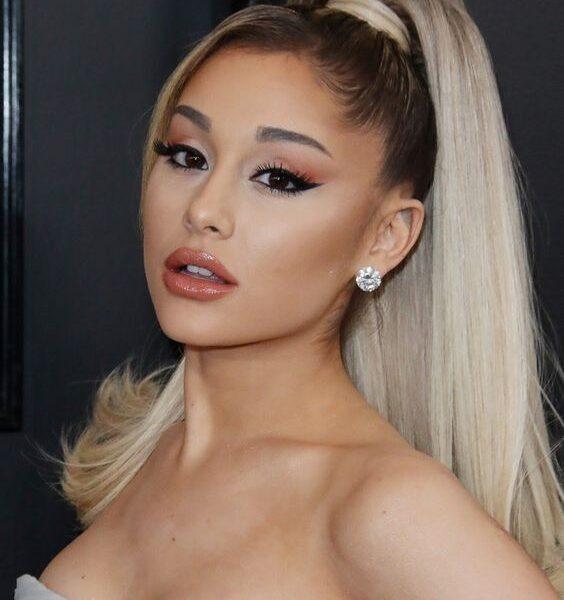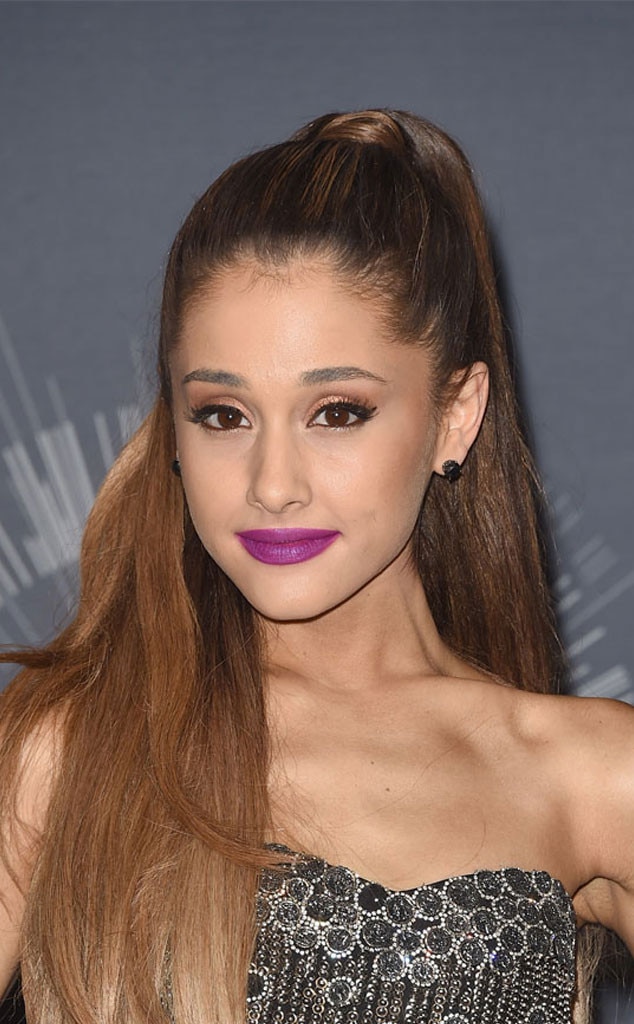Listen up, friends. We’re diving into a topic that’s been buzzing around the internet—Ariana Grande nude fakes. Yes, you heard it right. The internet has a way of turning everything upside down, and this is no exception. But before you jump to conclusions, let’s separate fact from fiction. It’s time to uncover the truth behind these so-called “nude fakes” and why they’ve become such a huge deal.
Now, you might be wondering, why are we even talking about this? Well, in today’s digital age, misinformation spreads faster than wildfire. And when it comes to celebrities like Ariana Grande, their private lives often become public property—whether they like it or not. So, we’re here to set the record straight and give you the lowdown on what’s real and what’s not.
Before we dive deeper, let’s establish one thing: Ariana Grande has always been open about her boundaries and her right to privacy. And that’s something we all need to respect. But with the rise of deepfake technology and AI-generated content, it’s become harder to distinguish reality from fabrication. So, buckle up because we’re about to break it all down for you.
Read also:Free Movies Tv Shows On Movies4uvip
Who is Ariana Grande? A Quick Bio
Let’s take a step back and talk about the woman at the center of this storm. Ariana Grande is more than just a pop star—she’s a global phenomenon. Born on June 26, 1993, in Boca Raton, Florida, Ariana has been captivating audiences since she was a teenager. But there’s more to her than just her music.
Here’s a quick look at her life:
| Full Name | Ariana Grande-Butera |
|---|---|
| Birthdate | June 26, 1993 |
| Place of Birth | Boca Raton, Florida, USA |
| Occupation | Singer, Actress, Songwriter |
| Debut | 2013 with "Yours Truly" |
| Awards | Over 200 awards, including multiple Grammys |
See? There’s so much more to Ariana than just the headlines. Now, let’s get into the nitty-gritty of why these “nude fakes” have become such a big deal.
What Are Nude Fakes Anyway?
Alright, let’s talk about the elephant in the room. Nude fakes, or deepfakes as they’re often called, are digitally altered images or videos that make it look like someone is doing something they didn’t actually do. In this case, we’re talking about Ariana Grande. But how did this even start? And why is it such a big deal?
Deepfake technology has been around for a while now, but it’s only in recent years that it’s become more accessible. With the right tools, anyone can create convincing fake content. And unfortunately, celebrities are often the target. It’s not just Ariana—other stars have faced similar issues too.
So, why does this matter? Because it raises important questions about consent, privacy, and the ethics of technology. These fakes can have real-world consequences, and that’s something we need to address.
Read also:Mika Lafuente Leak Shocking Details Revealed
The Impact on Ariana Grande
Now, let’s zoom in on how this affects Ariana. As one of the most followed celebrities on social media, she’s constantly in the spotlight. But with great fame comes great responsibility—and great scrutiny. The circulation of these fakes can be damaging, not just to her reputation but also to her mental health.
Think about it. Would you want someone creating fake content of you and sharing it with the world? Probably not. And yet, this is something Ariana and other celebrities have to deal with on a daily basis. It’s not just annoying—it’s invasive.
Here’s the kicker: these fakes can also affect her fans. People might see something online and assume it’s real without doing their research. And that’s where we come in. It’s our job to educate ourselves and others about what’s real and what’s not.
How Deepfakes Work
Let’s break it down a bit further. Deepfakes use artificial intelligence to manipulate images or videos. The technology analyzes thousands of images of a person and then uses that data to create something that looks convincingly real. But here’s the thing—it’s not real. It’s a fabrication.
- Deepfakes can alter facial expressions.
- They can change body movements.
- They can even create entire scenes that never happened.
It’s like magic—but not the good kind. And while the technology itself isn’t inherently bad, it can be misused in ways that harm people. That’s why it’s important to approach these fakes with a critical eye.
The Legal and Ethical Implications
Now, let’s talk about the bigger picture. Creating and distributing deepfakes without consent is not just unethical—it’s illegal in many cases. Laws around the world are starting to catch up with this technology, and that’s a good thing.
But here’s the challenge: enforcing these laws can be tricky. The internet is a vast and complicated place, and tracking down the creators of these fakes can be like finding a needle in a haystack. Plus, not all countries have the same regulations, which makes it even harder to tackle the issue globally.
So, what can we do? First, we need to educate ourselves and others about the dangers of deepfakes. Second, we need to support legislation that protects people’s rights to privacy and consent. And third, we need to hold platforms accountable for the content they allow on their sites.
Why Consent Matters
Consent is at the heart of this issue. No one should have to deal with fake content being created and shared without their permission. It’s a violation of their rights and their dignity. And that’s why we need to take it seriously.
Think about it this way: if someone took a picture of you without your consent and then altered it to make it look like you were doing something you weren’t, how would you feel? Probably pretty violated, right? That’s exactly how Ariana and other celebrities feel when these fakes are created and shared.
So, let’s be better. Let’s respect people’s boundaries and their right to control their own image. It’s not just the right thing to do—it’s the only thing to do.
How Fans Can Help
Now, here’s where you come in. As fans, we have a responsibility to support the people we admire. And that means standing up against things like deepfakes and other forms of misinformation. So, what can you do?
- Do your research before sharing anything online.
- Report fake content to the platforms where it’s posted.
- Support legislation that protects people’s rights to privacy.
- Have conversations with your friends and family about the dangers of deepfakes.
It might seem like a small thing, but every action counts. By standing up against these fakes, we’re sending a message that this kind of behavior won’t be tolerated.
What the Future Holds
So, where do we go from here? As technology continues to evolve, we’ll likely see more advanced forms of deepfakes. But that doesn’t mean we’re powerless. In fact, it’s quite the opposite. The more aware we are of these issues, the better equipped we’ll be to tackle them.
There’s already a lot of research being done on how to detect and combat deepfakes. And as these technologies improve, we’ll hopefully see fewer instances of fake content being created and shared. But it’s not just up to the experts—it’s up to all of us.
Remember, the internet is a powerful tool, but with great power comes great responsibility. Let’s use it wisely and respectfully.
The Role of Social Media Platforms
Social media platforms have a huge role to play in this. They need to take responsibility for the content that’s posted on their sites and do more to prevent the spread of fake content. That means investing in better detection tools and being more proactive in removing harmful content.
But it also means working with creators and influencers to promote education and awareness. By partnering with people who have large followings, platforms can reach a wider audience and make a bigger impact.
So, let’s hold these platforms accountable. Let’s demand better from them and push for change. Because at the end of the day, it’s all about creating a safer and more respectful online environment for everyone.
Conclusion
Alright, friends, that’s the scoop on Ariana Grande nude fakes. It’s a complicated issue with no easy answers, but one thing is clear: we need to do better. Whether it’s educating ourselves, supporting legislation, or holding platforms accountable, there are plenty of ways we can make a difference.
So, what’s the takeaway? Deepfakes are a real issue, and they have real-world consequences. But by working together, we can create a safer and more respectful online environment for everyone. And that’s something we can all get behind.
Now, it’s your turn. What do you think about all of this? Leave a comment below and let’s keep the conversation going. And if you found this article helpful, don’t forget to share it with your friends. Together, we can make a difference.
Table of Contents



